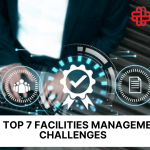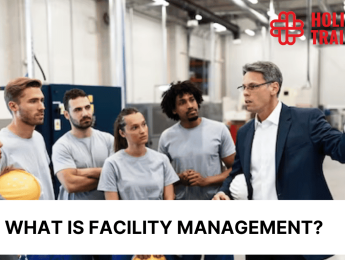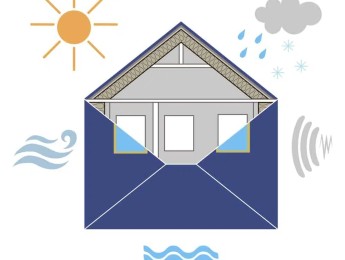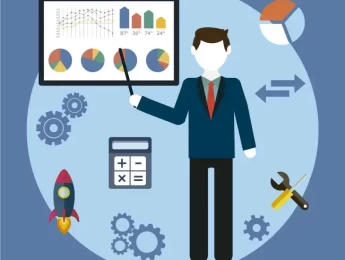Proper facilities management is an integral part of a successful business. Facilities constitute anything that allows a business to function seamlessly and aids employees in completing their jobs and maintaining high-quality services.
Facilities could cover cleaning services, waste management, kitchen staff, space and equipment management, and maintenance of any business premises to ensure all health and safety regulations are met. For any business, it’s important that facilities are always available, reliable, and accessible when required so that other employees can focus on the operation to move forward and grow.
Business continuity relies on the effective provision and management of facilities assets and facilities staff. It’s also important to work on the continuous development of any business facility to improve working conditions and make the operation flow more smoothly. This may include updating technology to meet new requirements or implementing extra facilities to accommodate more employees or people with disabilities.
Upon completion of this course, participants will be able to:
- Understand how to scope out a facility plan.
- Develop business continuity action plans to recover from problems.
- Motivate staff to adhere to health and safety regulations and understand their importance.
- Review risk assessments and implement changes to maintain service excellence.
- Understand best practices when dealing with various types of contracts.
- Identify issues with the service performance and manage them through positive change.
- Future-proof the business by constantly reviewing the facilities and predicting necessary changes for the future.
- Develop mutually beneficial relationships with business partners to aid successful facility delivery.
This training would be suitable for anyone responsible for managing elements of a commercial facility. It would be most beneficial for:
- Production Managers
- Operations Managers
- Business Owners
- Health & Safety Managers
- Directors
- Facility Owners
- Maintenance Managers
- Technology Specialists
- Project Managers
This course uses various learning styles to develop knowledge of facilities management across a range of different areas. Practical risk assessments and reviews will develop decision-tree frameworks to determine changes and priorities.
Practical sessions will review real-life case studies to discover new implementation techniques and assess future requirements for a variety of business areas and contracts, while trainer-led seminars will open discussion groups to share ideas.
Day 5 of each course is reserved for a Q&A session, which may occur off-site. For 10-day courses, this also applies to day 10
Section 1: What is Facilities Management?
- The role of facilities management.
- Why is facilities management important?
- Facilities vs. asset management.
- Asset management and secure record keeping.
- Basic ISO 55000 principles.
Section 2: Facilities Roles & Their Position Within a Business
- The various types of facilities.
- Service level agreements and how to maintain service levels.
- Life cycle costings and future frameworks (LCC).
- System engineering and RAMS.
- Planning in phases - differences in facility requirements throughout the year.
- 7 steps to a risk-based facilities management strategy.
- Asset management landscaping model.
Section 3: Creating an Effective Maintenance Strategy
- Effective budgeting.
- Planning for the future.
- Safety requirements during building maintenance.
- How to get the most out of facilities at the lowest cost.
- Drawing up a strategic plan within budget.
Section 4: Managing Contractors
- Best practice for handling contractors across various types of contracts.
- Discovering the most effective FTE count and recruitment.
- Choosing the right type of people.
- Outsourcing to facilities companies vs. in-house recruitment.
- Monitoring and managing underperformance.
- Facilities Management Balanced Score Cards (FMBSC).
- Managing behaviours.
Section 5: Risk Management
- Health and safety regulations and how to identify risks.
- Risk assessment development and utilisation.
- Identifying risks to business continuity.
- Eliminating single points of failure.
- Risk-based maintenance (RBM).
- Equipment testing (PAT) and assessing extra requirements to cover protected characteristics.
- Dealing with emergency changes.
Section 6: Continuous Improvement, Monitoring & Reviewing Processes
- Assessing requirements for the future.
- Practical insight and designs using past case studies.
- Benchmarking against other organisations.
- Current legislation and what needs to be provided.
- Auditing and lessons learned.
Upon successful completion of this training course, delegates will be awarded a Holistique Training Certificate of Completion. For those who attend and complete the online training course, a Holistique Training e-Certificate will be provided.
Holistique Training Certificates are accredited by the British Accreditation Council (BAC) and The CPD Certification Service (CPD), and are certified under ISO 9001, ISO 21001, and ISO 29993 standards.
CPD credits for this course are granted by our Certificates and will be reflected on the Holistique Training Certificate of Completion. In accordance with the standards of The CPD Certification Service, one CPD credit is awarded per hour of course attendance. A maximum of 50 CPD credits can be claimed for any single course we currently offer.
- Course Code IND21-101
- Course Format Classroom, Online,
- Duration 5 days














